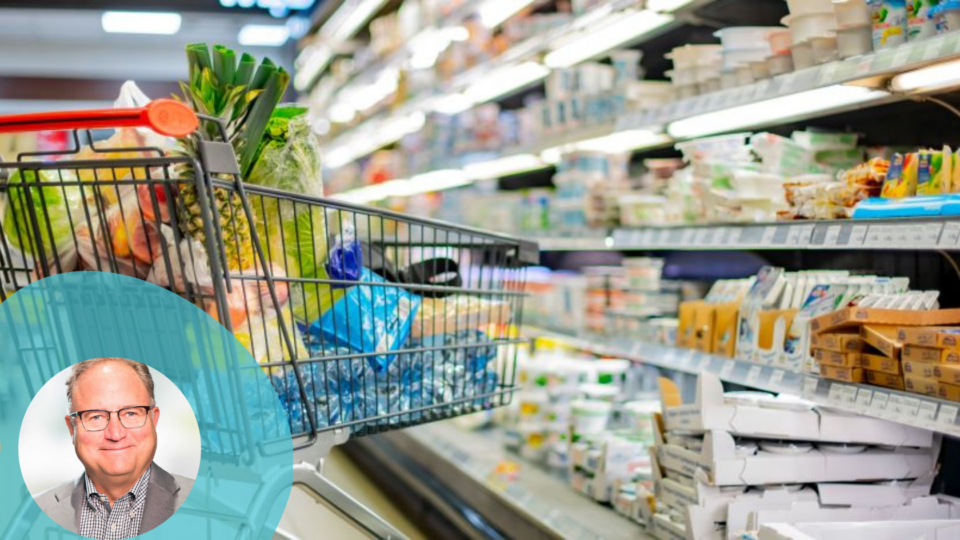The last few years have included incredible highs and the deepest of lows for food retailers, from finding workers during the pandemic to tackling widespread supply chain disruptions and rising costs. Organizations have been forced to navigate increased competition, accelerate digital transformation initiatives and adapt to changes in consumer preferences and behaviors.
What lies ahead? Accruent recently commissioned a study of the food retailer sector to understand what challenges await, from continued margin and cost pressures to being held back by legacy technology to the increased risk of cyber threats.
Continued Margin and Cost Pressure
While revenues are increasing, food retailers are still experiencing inflationary pressure, attributed to strong demand, higher-than-average wage growth in the industry and ongoing labor shortages. Challenges stemming from labor shortages will likely have the longest-term impact.
According to a McKinsey report, over one million roles remain open in the U.S. retail industry. Competition for workers is fierce, meaning workers can demand higher wages. Moreover, more and more retailers are offering upgraded incentives and benefits such as bonuses and tuition assistance to make positions attractive. These benefits add costs on top of already significant wage growth.
Advertisement
Technology will play an integral role in helping retailers to overcome labor challenges. Automating manual processes can increase productivity, reduce costs and improve the customer experience.
Digital Transformation Brings Cybersecurity Risks
The retail sector has long been an attractive target for cyberattacks, as operators hold a significant amount of sensitive customer data. The frequency and sophistication of cyberattacks continue to increase.
This is partly due to the acceleration of digital transformation and online shopping, which have led to more vulnerabilities and inroads for cybercriminals. Retailers do not need to be directly targeted for sensitive data to be at risk. As they rely on software solutions from multiple vendors, they depend on the vendors’ ability to mitigate evolving threats. Complex supply chains with multiple moving parts can lead to additional security vulnerabilities.
Retailers must tackle these threats, as well potential disruptions to operations, regulatory penalties, lost revenue, and reputational damage.
Legacy Technology Hinders the Customer Experience
Retailers that have invested heavily in new technology need help to integrate their new solutions with existing platforms. While they understand the importance of providing superior, end-to-end customer experiences, the challenge is getting there, with older systems impacting their ability to deliver. Only a few retailers have built truly seamless omnichannel offerings, harnessed data at scale and implemented agile ways of working throughout their organizations.
Food retailers that fail to further digital transformation initiatives risk losing market share, particularly to tech-savvy e-tailers and convenient, user-friendly online marketplaces. Technologies like generative AI will help shape the future of the industry, and large retailers already are experimenting with AI solutions. However, it’s important to carefully evaluate how each solution fits into the organization’s processes and overall tech stack.
Inflation is Driving New Buying Behaviors
Rising food prices have caused a shift in spending and shopping habits. Consumers are turning to warehouse clubs and supercenters to buy in bulk and save money, as well as spending more on food delivery services.
This could have a long-tail effect on margins, as premium and mid-market retailers see customers flee for cheaper and more convenient rivals. To remain competitive, retailers need to offer affordable, convenient options while delivering an exemplary all-round customer experience.
Shoplifting and Theft are a Problem
Increases in food prices and the impact of inflation on budgets have coincided with new patterns in shoplifting and theft. According to the Council on Criminal Justice, there was a 16% increase in shoplifting during the first half of 2023, with shoplifters targeting higher-value items.
Safeway mentioned theft as a reason for cutting back hours of a San Francisco store, while Walmart has stated that a spike in shoplifting may result in store closures.
Retailers are turning to technology to reduce theft, such as smart shopping carts and self- servicing locking cabinets. While these measures can be costly upfront, the hope is that they will more than cover the expenses by reducing the frequency and dollar value of thefts. Yet the potential impact on the customer experience is not easy to overcome.
What’s the Solution?
Challenges like inflation are tied to factors out of the control of any single organization, so there is no silver bullet to fix them. Retailers must look to their operations to optimize existing resources and minimize risk exposure.
For instance, monitoring energy consumption can help mitigate the impact of rising energy prices, with one estimate suggesting that reducing energy costs by 10% could increase the profit margin of the average supermarket by 16%.
Another area is managing complex real estate, fleet and equipment leases effectively. Workflow solutions can enhance the transparency of agreements, highlighting potential savings opportunities throughout asset lifecycles and ensuring that what can be a significant cost center is controlled.
Finally, smart IoT devices can help retailers mitigate several challenges, from theft prevention to improving in-store experiences and increasing supply chain visibility. These solutions can help companies optimize their operations, drive down costs, and improve overall profitability – as well as helping them better align with evolving consumer preferences.
As Chief Product and Technology Officer, Richard Leurig is responsible for the Accruent global engineering, product and information security teams. He is an accomplished executive with nearly 30 years of experience driving customer-focused and commercially successful innovation in complex product and technology portfolios for several major organizations. Prior to joining Accruent, Leurig served as CTO and SVP, Products and Partnerships, at ResMan Property Management Software, SVP of Innovation and Technology at CoreLogic Real Estate Data & Analytics, CIO at MoneyGram International and Co-founder of Route7 Solutions, a real estate and mortgage software and digital workflow consulting and product startup.




